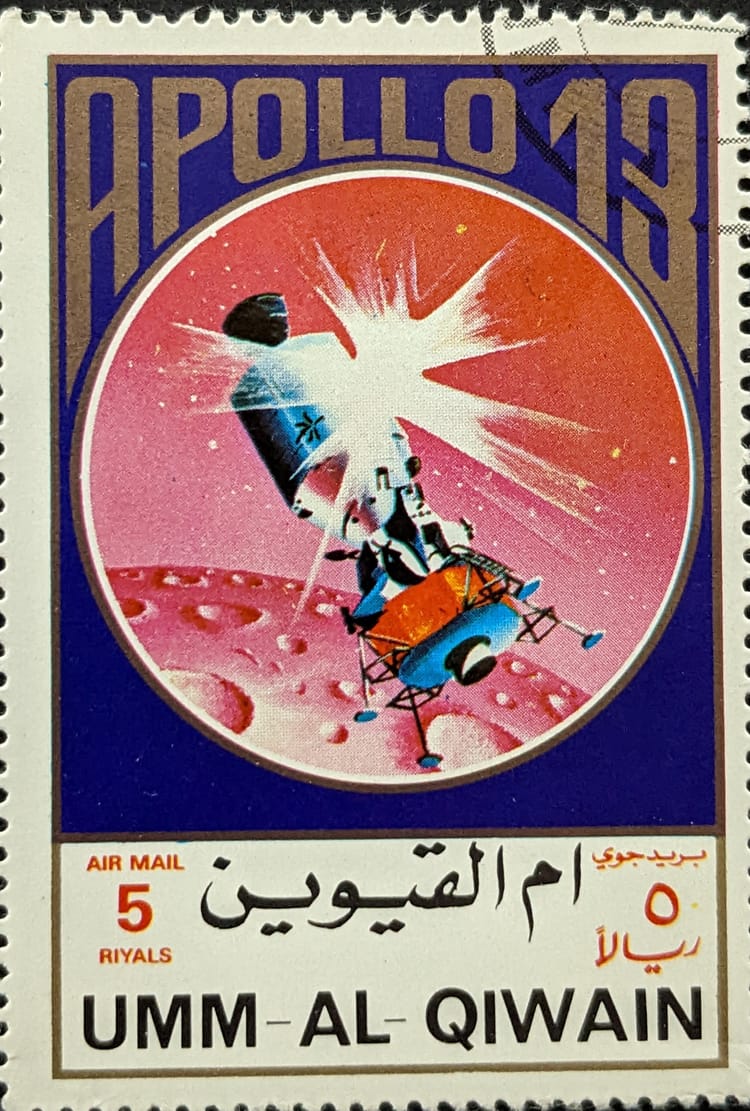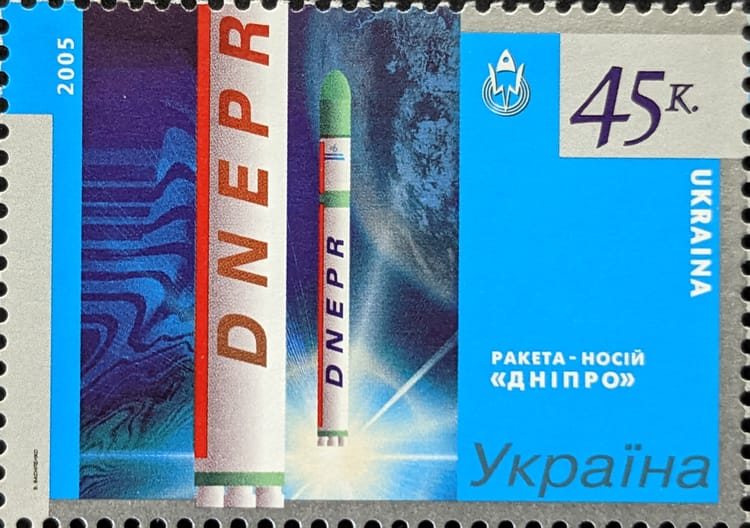Vizzini’s Values, OneWeb, and DoD Protectionism in a Startup Marketplace
Note: The house is sold, so we’re in the middle of moving out. This means (as I’ve noted before) sporadic posting of analyses to Ill-Defined Space during the next couple of weeks--and why there was no post last Thursday. The post might be shorter during this time, too.
Nearly a month ago, I wrote up “OneWeb’s Loan-ly Quest” and provided a curt analysis of OneWeb’s loan request from the United Kingdom. One of OneWeb’s reasons for why it should get an emergency loan from the UK was that if OneWeb was granted the loan, then:
[t]he company’s invaluable technologies (and probably associated intellectual property), would stay out of “foreign” hands...
Vizzini’s Values May be Costly
I must reference that post when looking at the latest news surrounding OneWeb and other commercial space companies (including IntelSat’s bankruptcy filing). In a SpaceNews.com article, “Space Force vice commander: China can’t be allowed to buy bankrupt U.S. space companies,” the Space Force seems to be set on preventing “invaluable technologies” from falling into “foreign hands.” But instead of focusing just on OneWeb, all commercial U.S. space companies could be eligible.
I wrote in “OneWeb’s Loan-ly Quest” that “...[i]t would be good, if the UK is seriously considering OneWeb’s request, for the government to ask for a list of the unique/valuable technologies and identify what the company believes is so critical to keep from foreign hands.”
The same applies to the Space Force’s (SF) consideration of this plan--it would be good if the SF identified any and all invaluable technologies it thinks is worth saving. It might also be good if the SF identified what it believes the word “invaluable” means. It may not mean what the SF thinks it means. While the U.S. space industrial complex wrestles with potentially destroying (free markets) what it says it is protecting, this idea of China and its companies swooping in to buy technology, software, and intellectual property is not a new challenge facing the U.S.
In a 2018 Politico post about this very topic came this truth (Bold added by me):
“Security and economics experts say they are unsure how much financial or national security harm these Chinese investments are actually causing the United States — if any — simply because it may not be clear for years exactly how important the technology may be.”
Again, the question needs to be asked--how does the Department of Defense (DoD) and SF KNOW what valuable technologies the commercial U.S. space companies are working on? How do they make a judgment of how much harm there is to national security or the financial sector? Are commercial space companies harmed or helped if the DoD starts jumping in to prevent Chinese investment in U.S. space companies?
Maybe some U.S. commercial space companies view funding from Chinese investors as a godsend. Especially those companies working in a Silicon Valley Startup mindset. If the DoD came in to “protect” those companies’ intellectual properties and technologies, and that “protection” is much less than what the company could get from Chinese investors, is that really doing any favors for the companies? In that same Politico post, Skymind’s Chris Nicholson had this observation to bring forward if the U.S. government started getting heavily involved:
“Here’s my warning shot,” Nicholson said. “If we make it difficult for foreign talent and foreign capital to find each other by over-regulating early-stage startup investing … we will lose our supremacy as the top tech economy in the world.”
And stepping in as the DoD suggests it might, could cause U.S. commercial investors to pause and perhaps decide not to invest in those startup technology companies. That seems to be an outcome that defeats the reasons for the DoD to consider doing this in the first place. Like the character Vizzini, the DoD will likely ultimately and fatally guess incorrectly.
Covering Every Business?
There’s another problem--the DoD and U.S. government can’t afford to do this--not for every startup. It sets a precedent that, as we are seeing from history, doesn’t just involve the space sector. It would involve the encompassing technology sector.
New U.S. technology startups are founded in the tens of thousands every quarter. Surely the DoD’s budget isn’t so unconstrained that it could protect each and every startup? And if it can’t, how does it decide which companies have valuable enough technology, etc., to protect them? It ultimately comes down to the DoD having to “pick winners” and since the funding pipe will likely be very limited, there will be more losers than winners.
Picking winners would distort a sector that’s typically associated with being nimble, risky, fast-evolving, and ever-failing--and has been one of the strongest sectors in the U.S. Should the DoD tamper with that? Is that what U.S technology startups really want? Do they even worry if the money comes from China? That Politico piece points to some evidence that Chinese investment is welcome. Nicholson noted that China’s investment in his company allowed it to grow and survive while not ceding code control to Chinese investors.
Such an arrangement is probably more common than most people realize. It also shows how the DoD might be ignorant of actual marketplace forces at work, as the fear of “invaluable technology” falling into the hands of investors is not how investing works. Investors are more interested typically in the possible results (more money back) than perhaps the technology or intellectual property being used. To be sure, there are cases of government-backed companies from China that are doing that’s government’s bidding, but not all.
This may be a case of ignorance and fear resulting from that ignorance for the DoD and the U.S government. It’s an easy knee-jerk when both of those entities are looking through the national security lens. But the U.S. marketplace in the technology sector is much bigger, much more flexible, than perhaps both understand it to be.
And because of that, the DoD is trying to have its cake and eat it too. It wants all the latest and greatest technologies (although I question why OneWeb is referenced by the DoD for this story, especially since it’s not a U.S. company). But it doesn’t know what those technologies are and it’s using a national-security/national-defense framework to judge what an “invaluable” technology is, which is not a framework to use when judging the value of U.S. technology startups.
In other words, the DoD would never have paid $400 million for Giphy.com.




Comments ()